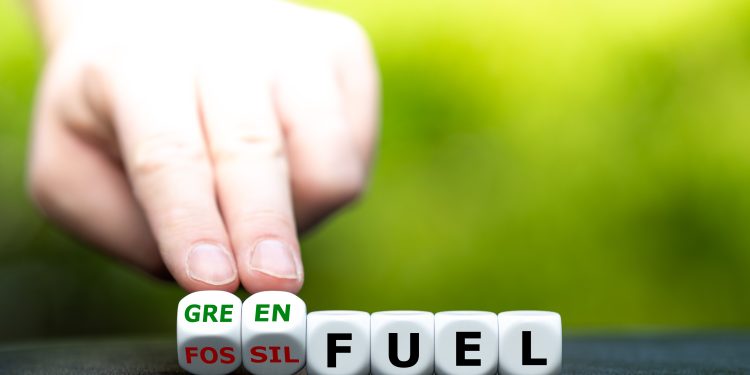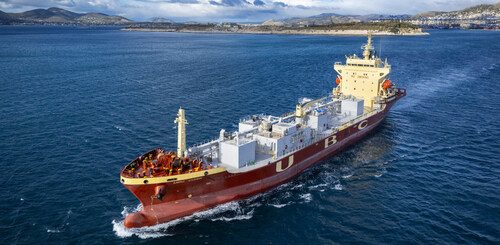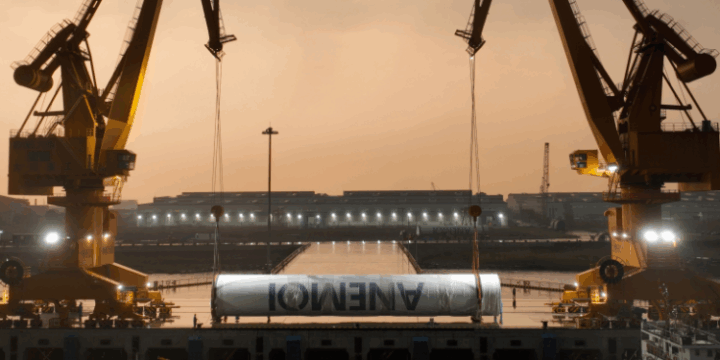July 17, 2025

Ahead of the Implementation Dialogue meeting of Commissioner Tzitzikostas with airlines and shipowners on the European Sustainable Transport Investment Plan (STIP), A4E and European Shipowners (ECSA) in a joint statement highlighted the need to prioritise the production availability of affordable clean fuels in shipping and aviation.
According to the Draghi Report, around 100 billion EUR in investment is needed annually for the energy transition of European shipping and aviation. The Clean Industrial Deal identifies aviation and shipping as one of the most difficult industries to decarbonise, specifically calling on the upcoming STIP to outline short- and medium-term scalable measures to prioritise support for clean fuels for shipping and aviation.
Against this background, European Shipowners (ECSA) and Airlines for Europe (A4E) call on the Commission to prioritise investments in production, distribution, and affordability of clean, safe, and affordable maritime and aviation fuels for the energy transition.
The statement aligns with a similar call by the Clean Maritime Fuels Platform, which urged the European Commission to establish dedicated maritime funding windows in the upcoming STIP to support the production, distribution and adoption of clean maritime fuels.
Make clean fuels available for shipping and aviation
The International Maritime Organization (IMO) agreed in April on its IMO Net-Zero Framework. European Shipowners welcome this critically important development, as shipping requires one regulatory framework at the international level and full harmonisation of the EU legislation with the IMO climate agreement. The transition of international shipping to net zero is expected to create demand for clean fuels at the international level. Thus, the IMO measure will be an opportunity for European energy producers to make these fuels available in the market as long as the necessary investments are made.
Invest EU and national ETS revenues in the decarbonisation of shipping and aviation
EU ETS revenues generate around €10 billion from shipping and aviation annually for the EU and EU/EEA Member States. These revenues must be reinvested in the energy transition of shipping and aviation, as long as the two sectors are paying under the EU ETS.
Several Member States, including France and Germany, have recently pledged to earmark revenues for maritime and aviation decarbonisation, particularly for clean fuel production. Therefore, a requirement to direct the national ETS revenues from shipping and aviation for the decarbonisation of these sectors should be introduced in STIP.
Strengthen production capacity and bridge the price gap
The current regulatory framework presents an opportunity for European fuel suppliers to establish a strong industrial base in Europe for clean fuel production for shipping and aviation, in line with the objectives of the Competitiveness Compass and the Clean Industrial Deal. A 40% mandate for clean fuels and technologies produced in Europe in line with the Net Zero Industry Act will provide certainty to energy producers and manufacturers.
STIP should support the production and affordable uptake of sustainable aviation fuel (SAF) and low- and zero-carbon maritime fuels, by de-risking offtakes, narrowing the price gap with conventional fuels, stabilising prices, and unlocking large-scale investment. Funding should go beyond state-of-the-art projects and ensure the scale-up and deployment of clean fuels and technologies already available on the market.
In addition, according to the joint statement, priority access to clean fuels should be given to shipping and aviation.
Simplification
Administrative burden should be limited to ensure that SMEs, which are the backbone of the shipping sector, can apply to the Innovation Fund calls and access this support. This could be achieved by revising the criteria to apply to the Innovation Fund, which currently does not deliver either for shipping or aviation, particularly in the context of fuels production projects.

